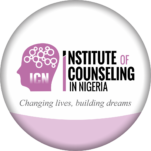Work is still being done to determine the direct causes of substance abuse and mental health issues. While there is still much to be discovered, it is known that a number of factors play into the development of these disorders, and many of these factors are similar across both mental health and substance abuse issues.
- Biological Factors: A family history of substance abuse can make a person more vulnerable to addictionink in response to stress. Studies do show that genes, such as those that have an effect on the way a person responds to alcohol, may be responsible for about half of the risk of developing alcoholism. Some of these genes increase a person’s risk, while some may instead decrease the risk of a person’s developing alcoholism.
While having parents that abuse drugs puts a child at risk, it is possible for the child to grow up without drug abuse problems. It is also possible to abuse drugs without having any other drug abuser in the family. It is clear genetics alone is not the cause of drug abuse.
- Psychological Factors: Research indicates that the vast majority of people who are addicted to drugs or alcohol have an underlying mental health condition or significant emotional or psychological difficulty. About half of all people with mental health diagnoses will face challenges with drugs or alcohol at some point in their lives, usually as a result of using drugs or alcohol to self-medicate.
People who misuse drugs or alcohol often do so as a way of coping with experiences, memories, or events that emotionally overwhelm them. Whether they are equipped with appropriate coping strategies or not, people who misuse substances rely on the immediate gratification of drugs and alcohol as an alternative to facing the issues at hand. In the long term, however, reliance on drugs and alcohol will almost surely worsen any emotional or psychological condition. Chronic self-medication may be a sign that therapy is warranted in order to address an underlying condition or difficulty.
- Environmental Factors: There are certain life circumstances, particularly among younger users, that are risk factors for, rather than the direct cause of drug abuse. Parental abuse and neglect are commonly seen as part of the cause of drug abuse. An adolescent or pre-adolescent may be trying to gain attention from an inattentive parent or escape an abusive one by using drugs; prolonged attempts through drug use can be a cause of drug abuse. A drug user, or the presence of drugs in the home, can also be a major cause of drug abuse.
Additional environmental factors contributing to the causes of drug abuse include:
- Unstable home environment, often due to drug abuse or mental illness of the parent,
- A poor relationship with parents,
- Use of drugs by friends or peers,
- Permissive attitude towards their own drug use and the drug use of the adolescent,
- Behavioural problems combined with poor parenting,
- Poor achievement in school,
- Apparent ambivalence or approval of drug use in the school, peer group or community,
- Availability of drugs from friends .
- Physiological Factors: Once a person begins using drugs heavily, physiological changes often take place, and that person may then become physically dependent, requiring him or her to continually use the substance in order to avoid withdrawal symptoms.
- Combination Of Causes Of Drug Abuse: While genetic, environmental and psychiatric causes of drug abuse are possible, it is likely that a combination of risk factors is truly the cause of drug abuse. If a person has a genetic predisposition to drug abuse, that likely indicates one of the parents abuses drugs. This may create an unstable home life and, possibly, emotional or psychological problems. Together, these can become the drug abuse cause.
